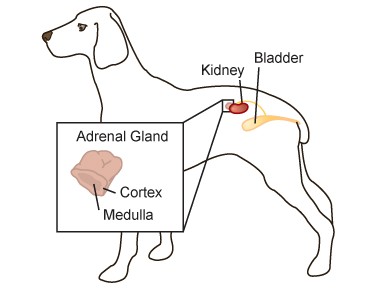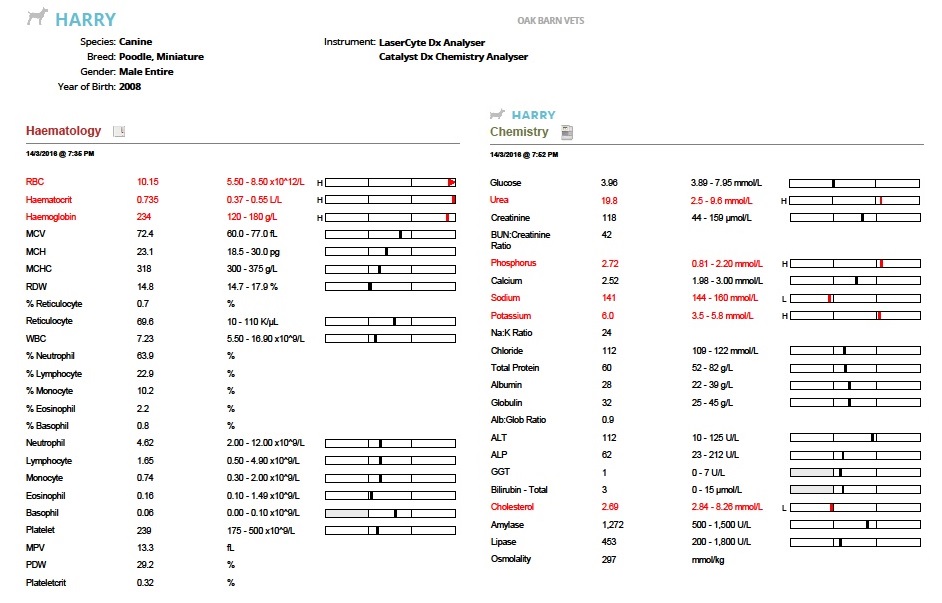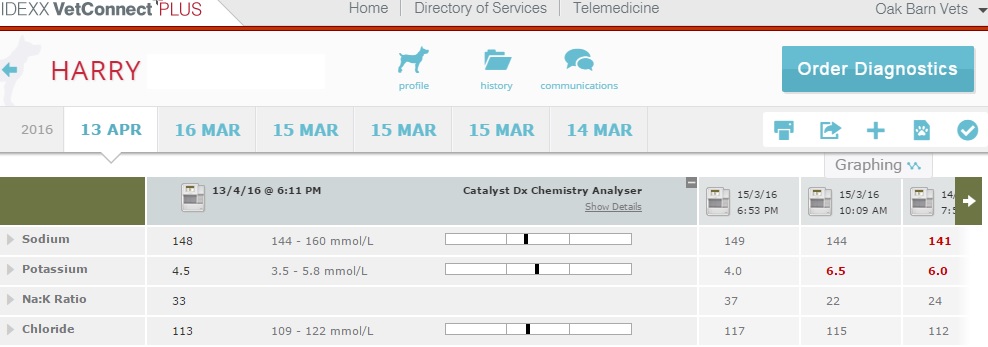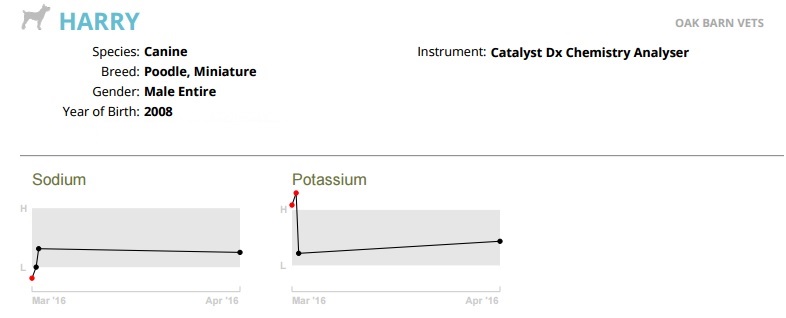Addison’s disease, never heard of it!? Well Harry has!
This month, for those of you with a more sensitive disposition, you will be glad to be spared gory photos of surgery and trauma. Instead we will be talking about Addison’s disease, a condition which we can encounter from time to time and one which, if not recognised early, can be potentially life threatening.
The scientific name for Addison’s disease is “hypoadrenocorticism” and this rare condition was discovered by the British physician Thomas Addison. John F. Kennedy was a famous sufferer of Addison’s disease and we have diagnosed and treated 4 equally famous cases here at Oak Barn Vets, Harry being our most recent addition.
Addison’s is a complicated condition in dogs which involves a decrease in production of natural steroid in the body. The adrenal glands, a pair of which can be found by the kidneys, are responsible for producing steroid hormones which help to regulate the body’s response to stress as well as controlling electrolyte (salt) balance. In certain individuals the adrenal glands lose their function and are unable to produce these steroid hormones at the right level. The condition is thought to come about due to the body’s own immune system destroying the steroid producing cells within the adrenal glands.
Although we think of steroid medications as potentially having lots of side effects, at low doses, naturally produced steroids are essential to help the body function, especially at times of stress or illness and in controlling electrolyte levels. The function of muscles and nerves throughout the body all rely on electrolyte levels being carefully controlled by the adrenal glands and kidneys.
Pets which become unwell with undiagnosed Addison’s disease can sometimes suffer from an “Addisonian crisis”. This is a potentially life threatening condition where the drop in steroids has led to muscle weakness, dehydration and a drop in blood pressure. They may suffer signs such as vomiting, diarrhoea, shaking and muscle twitching and, if untreated, can collapse and die.
Thankfully most owners will recognise that their pet is unwell and seek help long before this and the majority of animals are diagnosed in the early stages of the disease with signs of lethargy or stomach upsets.
One of our Addisonian patients suffers from “atypical Addison’s” where only the stress hormones are deficient and these can be harder to diagnose as electrolyte abnormalities are not found on their blood test results.
Harry was first seen one evening, having been suffering from signs of depression and unwillingness to eat. He had also been sick the previous day and his owner was becoming increasingly worried about his un-bounciness.
On examination Harry was found to be dehydrated with signs of low blood pressure and a blood sample was taken to run while his anxious owner waited. In the meantime Harry was treated with intravenous fluids to help correct his dehydration.

The blood sample quickly showed that Harry was significantly dehydrated and his potassium salts were high and his sodium salts were low. This pattern of electrolyte changes is very classic for Addison’s disease.
Overnight hospitalisation, intravenous fluids and steroid medication soon had harry feeling much more his normal self and a stimulation test of his adrenal glands (an ACTH stimulation test) showed them to have poor function in producing natural steroid.
Harry was able to go home the next day and prescribed ongoing medication to take the place of his failing adrenal glands. It is important that this medication is ongoing and life-long as sadly the adrenal glands do not recover their function. However dogs with Addison’s disease can go on to live very normal and health lives with ongoing medication. The graphs below show how much he has improved now he is on treatment.

 Some recent changes to drug availability and licencing has recently made treating Addison’s disease even more effective and potentially easier as a monthly injection has now become licenced in the UK to treat the salt deficiency that Addison’s sufferers develop.
Some recent changes to drug availability and licencing has recently made treating Addison’s disease even more effective and potentially easier as a monthly injection has now become licenced in the UK to treat the salt deficiency that Addison’s sufferers develop.
Harry is now back to feeling like his old self and is none the worse for his wobbly episode.
If you have any queries regarding Addison’s disease or any other concerns with your pet then please do not hesitate to call us.




